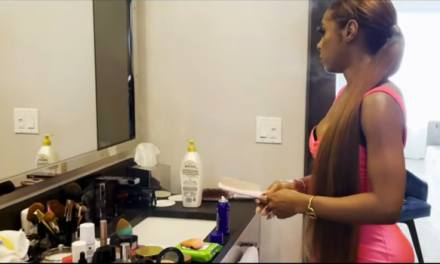
When thinking about second homes, it’s natural to think this means buying a house, condominium or mobile/manufactured home. However, many long-term renters consider their getaway as a second home.
Rental = Second Home?
At what point does a rental become a second home? In one respect, it’s in the mind of the renter. Consistently returning to the same property year after year could easily cause one to view it as more than a vacation spot or some other sort of temporary arrangement.
What goes into this thinking? Here are a couple of dimensions.
How Long Is the Rental?
For a lot of people, a longer-term rental of 3 to 12 months could be viewed as a second home.
Consistently Return to the Same Property?
Returning to the same long-term rental annually would make it easier to confer second home status on the property in the renter’s mind.
Consider this scenario. A couple from Iowa rents the same Nevada house every year from November through April. They bring enough clothes and personal belongings in the car to see them through the six months. They also rent a storage unit in Nevada to hold items like bicycles they prefer not to carry to and from their primary home.
Also, if they stay in Nevada for over half the year, even by one day, they will no longer pay Iowa state income tax.
Given this hypothetical situation, it’s understandable how this couple considers their Nevada rental as a second home.
Buy or Rent?
First, let’s look at the arguments in favor of buying.
Ownership = Equity
An owned asset (your house) can fluctuate. Since U.S. real estate values have gone up across most markets over the past 50 years, buyers could reasonably expect their second home value to increase over time.
Rental Income
Owning a home means you can rent out the property for income.
Tax Advantage
Mortgage interest can be deducted from federal taxes for both a primary and second home.
Independence
The owner of a home can use the property whenever desired. Also, there’s the freedom to store things and decorate the dwelling inside and out. However, if a Homeowner Association is involved, various rules may exist that the owner must follow.
So, what are the disadvantages of buying?
Value Can Go Down
Owning an asset involves risk, so there is no guarantee that a second home will increase in value.
Landlord Responsibility
If renting out a property for income, there can be headaches involved regarding work and expense.
Ownership Costs
There are lots of expenses in owning a second home beyond the purchase price. Interior and exterior structure maintenance, appliance repair/replacement and other needs can get expensive.
Next, let’s consider the positive aspects of renting.
No Ownership Risks and Costs
Renters depend on the landlord to cover property maintenance, structural insurance and other costs. Renters also evade the costs of purchasing or selling. Most importantly, renters pay only for the time spent staying in the property, while owners pay even when they’re not living there.
Flexibility
When renters no longer want to stay in a property after the lease expires, they can simply leave. This allows them the freedom to rent different properties in different locations each year, which could be an excellent way to scout future retirement locations.
What’s negative about renting?
No Asset Appreciation
Although the risk of owning a second home is the value could go down, renters cannot benefit from the flip side of booking gains in a rising market.
No Income
There are no chances to earn rental income.
No Tax Breaks
Renters have no ownership tax advantages.
The Landlord Rules
Renters are at the mercy of the landlord.
Costs of Renting
Renters not only pay rent but also pay for such things as a security deposit, pet deposit/fees, renter’s insurance, and utilities.
Decision, Decisions
The decision to buy or rent involves a combination of personal and economic aspects.
Personal Questions
Do I want to:
- Live in the property anytime I please?
- Be responsible for maintaining the property?
- Be able to change the property inside or out?
- Stick with one location for a second home?
- Follow landlord rules?
Economic Aspects
- Do I want an asset that could go up and down in value?
- Do I want to be able to rent out the property?
- Do I have the money to buy and maintain a property?
- How do buying and renting compare in terms of total financial outlay?
Doing the Analysis
To compare buying and renting, you’ll need some data. For a purchase, these are the primary costs:
- Purchase price
- Down payment
- Mortgage amount and interest rate
- Mortgage Payment (P&I)
- Property Taxes
- Insurance
- Maintenance, Repairs, etc.
For renting, gather this data:
- Monthly rental amount
- Non-refundable front-end fees
- Other monthly fees
You can input these numbers into a rent versus buy calculator like realtor.com to help you compare the two alternatives. Remember that changing some assumptions can yield varying results, so don’t hesitate to try different scenarios to find the best fit for your situation.
Further read, SECOND HOME: WHAT TYPE IS RIGHT FOR YOU?
Let’s Have a Conversation:
What factors do you consider when you rent a property? Do you consider the same factors when buying? Does renting or buying a second home makes more sense to you?





